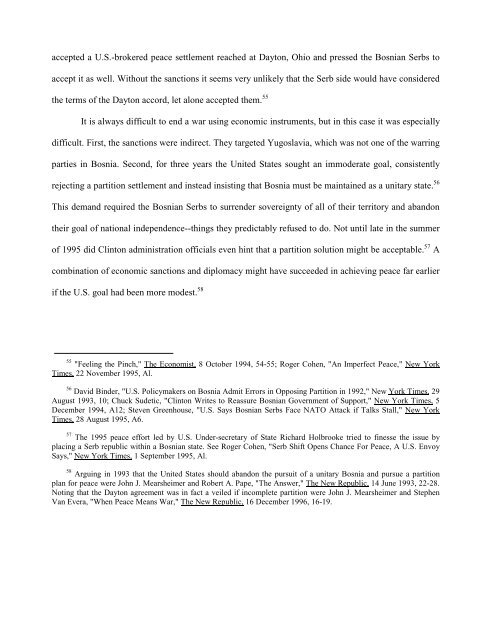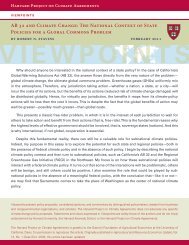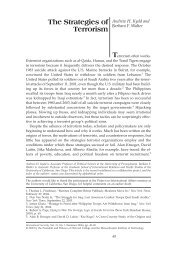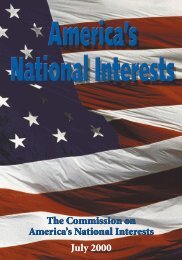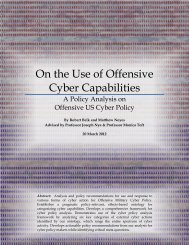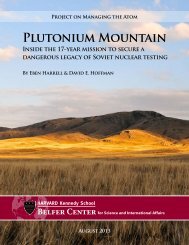Using Economic Sanctions to Prevent Deadly Conflict Elizabeth S ...
Using Economic Sanctions to Prevent Deadly Conflict Elizabeth S ...
Using Economic Sanctions to Prevent Deadly Conflict Elizabeth S ...
You also want an ePaper? Increase the reach of your titles
YUMPU automatically turns print PDFs into web optimized ePapers that Google loves.
accepted a U.S.-brokered peace settlement reached at Day<strong>to</strong>n, Ohio and pressed the Bosnian Serbs <strong>to</strong>accept it as well. Without the sanctions it seems very unlikely that the Serb side would have consideredthe terms of the Day<strong>to</strong>n accord, let alone accepted them. 55It is always difficult <strong>to</strong> end a war using economic instruments, but in this case it was especiallydifficult. First, the sanctions were indirect. They targeted Yugoslavia, which was not one of the warringparties in Bosnia. Second, for three years the United States sought an immoderate goal, consistentlyrejecting a partition settlement and instead insisting that Bosnia must be maintained as a unitary state. 56This demand required the Bosnian Serbs <strong>to</strong> surrender sovereignty of all of their terri<strong>to</strong>ry and abandontheir goal of national independence--things they predictably refused <strong>to</strong> do. Not until late in the summerof 1995 did Clin<strong>to</strong>n administration officials even hint that a partition solution might be acceptable. 57 Acombination of economic sanctions and diplomacy might have succeeded in achieving peace far earlierif the U.S. goal had been more modest. 5855 "Feeling the Pinch," The Economist, 8 Oc<strong>to</strong>ber 1994, 54-55; Roger Cohen, "An Imperfect Peace," New YorkTimes, 22 November 1995, Al.56 David Binder, "U.S. Policymakers on Bosnia Admit Errors in Opposing Partition in 1992," New York Times, 29August 1993, 10; Chuck Sudetic, "Clin<strong>to</strong>n Writes <strong>to</strong> Reassure Bosnian Government of Support," New York Times, 5December 1994, A12; Steven Greenhouse, "U.S. Says Bosnian Serbs Face NATO Attack if Talks Stall," New YorkTimes, 28 August 1995, A6.57 The 1995 peace effort led by U.S. Under-secretary of State Richard Holbrooke tried <strong>to</strong> finesse the issue byplacing a Serb republic within a Bosnian state. See Roger Cohen, "Serb Shift Opens Chance For Peace, A U.S. EnvoySays," New York Times, 1 September 1995, Al.58 Arguing in 1993 that the United States should abandon the pursuit of a unitary Bosnia and pursue a partitionplan for peace were John J. Mearsheimer and Robert A. Pape, "The Answer," The New Republic, 14 June 1993, 22-28.Noting that the Day<strong>to</strong>n agreement was in fact a veiled if incomplete partition were John J. Mearsheimer and StephenVan Evera, "When Peace Means War," The New Republic, 16 December 1996, 16-19.


